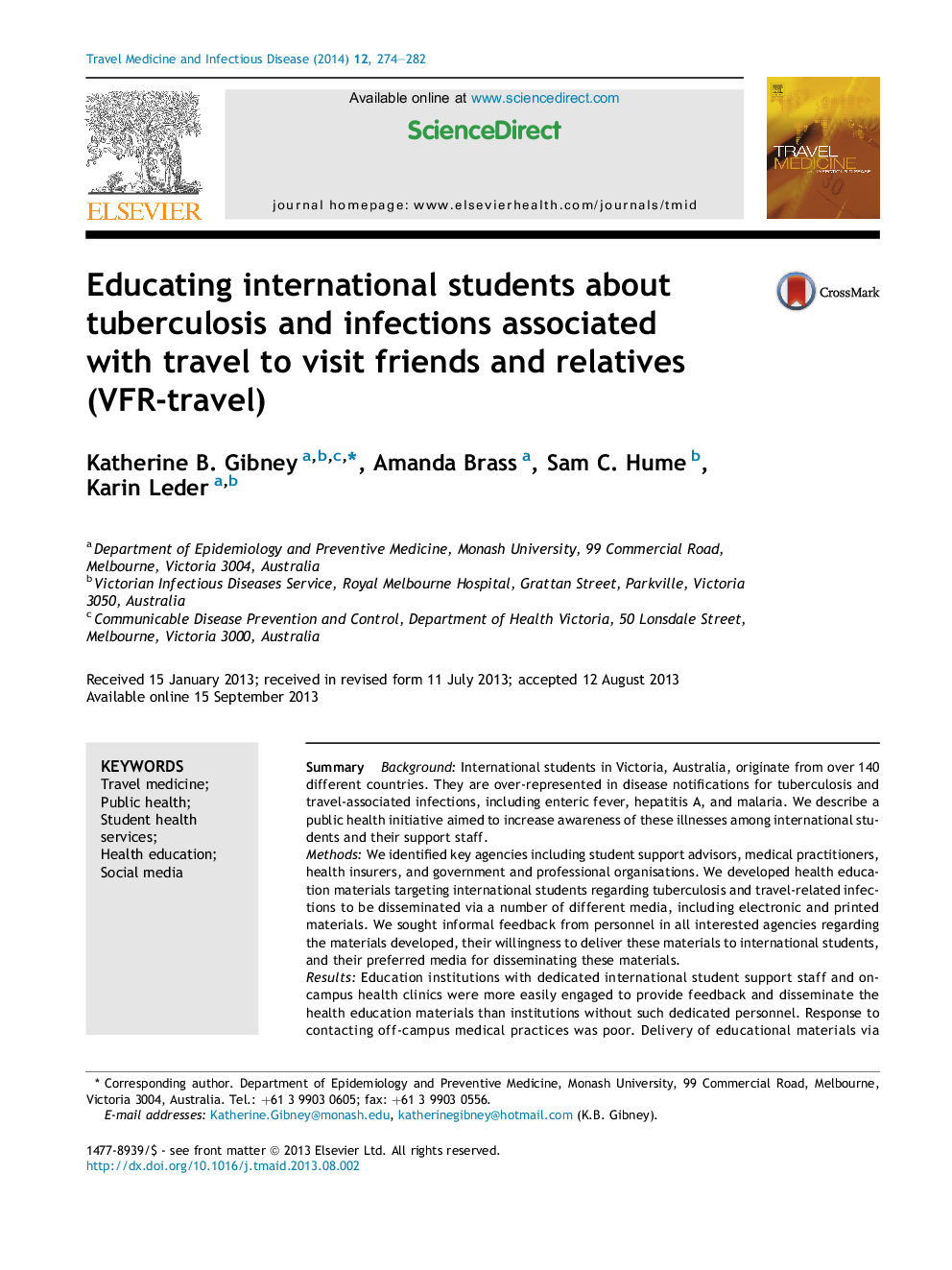| Article ID | Journal | Published Year | Pages | File Type |
|---|---|---|---|---|
| 3393010 | Travel Medicine and Infectious Disease | 2014 | 9 Pages |
SummaryBackgroundInternational students in Victoria, Australia, originate from over 140 different countries. They are over-represented in disease notifications for tuberculosis and travel-associated infections, including enteric fever, hepatitis A, and malaria. We describe a public health initiative aimed to increase awareness of these illnesses among international students and their support staff.MethodsWe identified key agencies including student support advisors, medical practitioners, health insurers, and government and professional organisations. We developed health education materials targeting international students regarding tuberculosis and travel-related infections to be disseminated via a number of different media, including electronic and printed materials. We sought informal feedback from personnel in all interested agencies regarding the materials developed, their willingness to deliver these materials to international students, and their preferred media for disseminating these materials.ResultsEducation institutions with dedicated international student support staff and on-campus health clinics were more easily engaged to provide feedback and disseminate the health education materials than institutions without such dedicated personnel. Response to contacting off-campus medical practices was poor. Delivery of educational materials via electronic and social media was preferred over face-to-face education.ConclusionsIt is feasible to provide health education messages targeting international students for dissemination via appropriately-staffed educational institutions. This initiative could be expanded in terms of age-group, geographic range, and health issues to be targeted.
